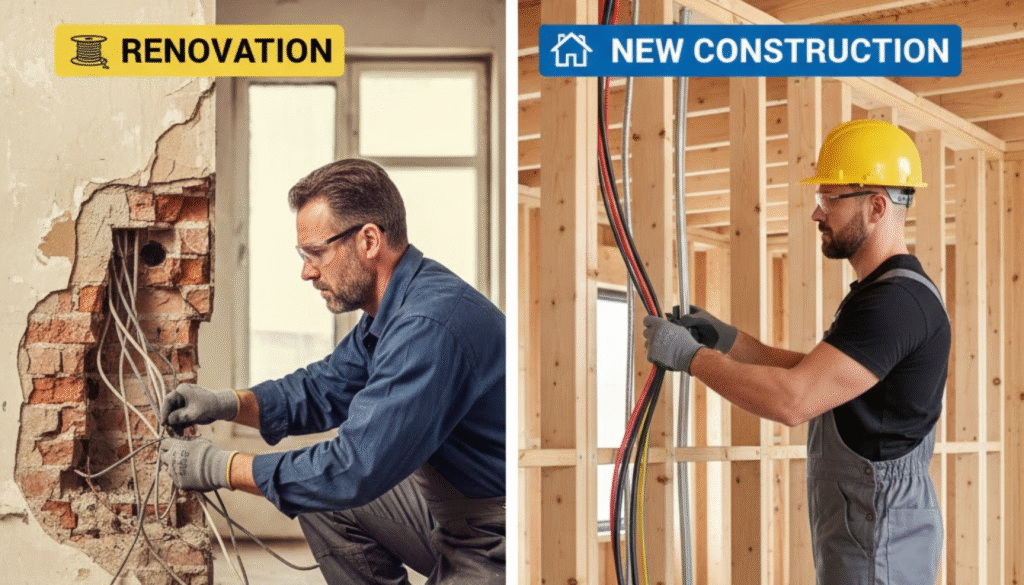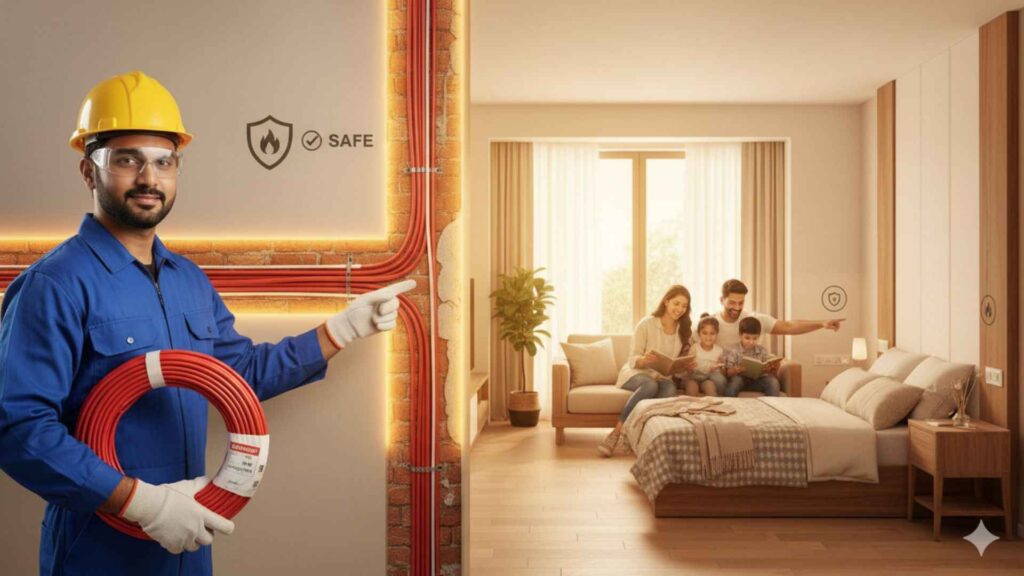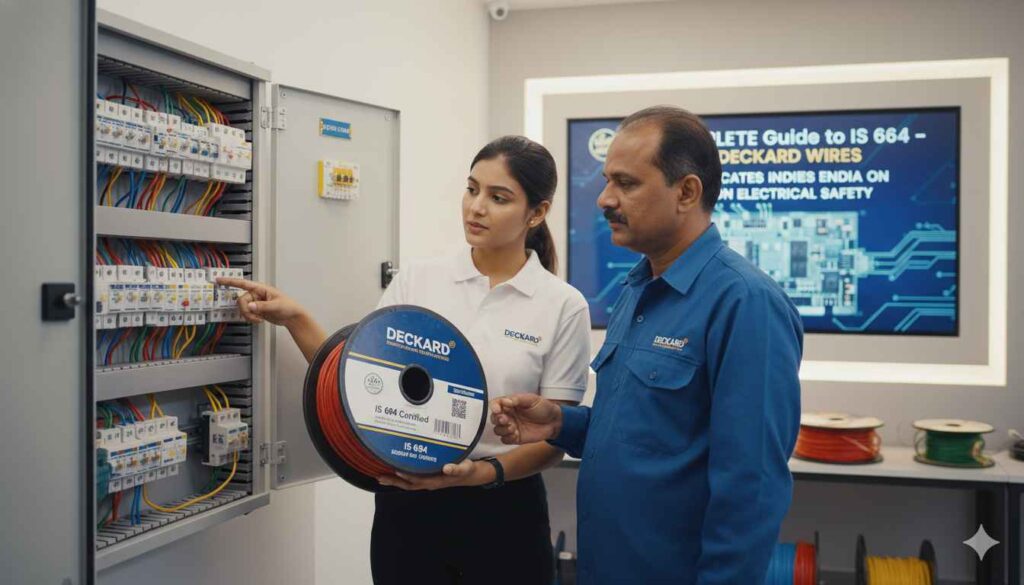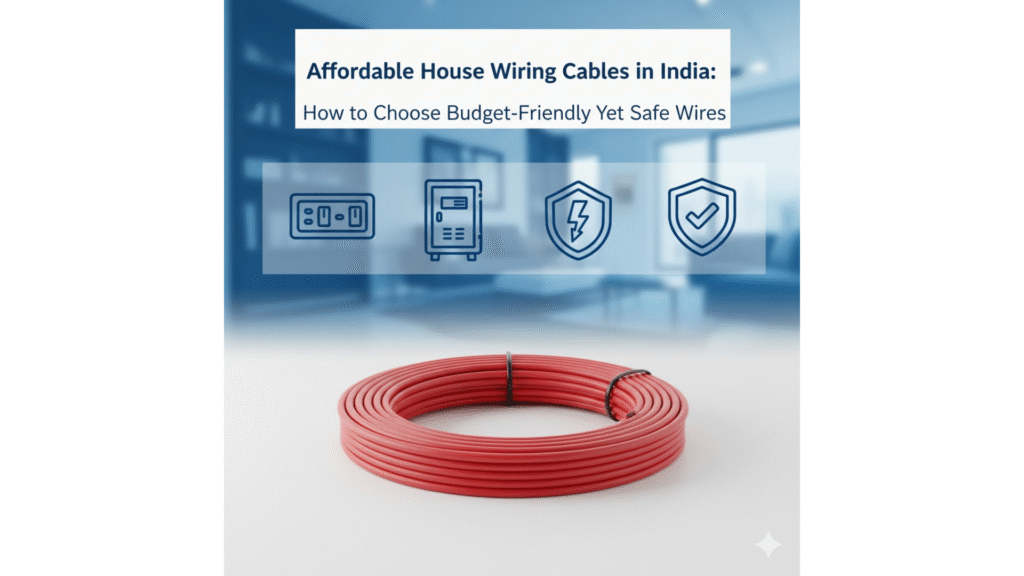
The selection of electrical wire is one of the most important choices that one may make when undertaking any building project, be it renovating an old building or building a new one. Although the two scenarios demand safe, durable and reliable wiring, the real requirement is quite different. As the modern home is now heavier in consumption of power and more concerned regarding safety, the choice of the most suitable home electrical wire in India is not a choice; it is a necessity.
This blog describes the most important aspects of wiring in renovation and new construction, the issues involved, advice of experts and how home and industrial cable should be used in modern electrical installation in India.
Renovation vs New Construction:
Renovation Wiring Needs
Renovation projects require wires that work well with the existing structure. The electrician must match the old system’s layout while upgrading performance. Old homes may not have been designed for modern appliances, leading to load mismatch issues.
New Construction Wiring Needs
In new construction, every wiring is constructed starting at zero. You are able to design load allocation, room circuits, an intelligent household, and expansions. This necessitates the achievement of the most appropriate home electrical wiring in India, which guarantees efficiency over the decades.
Challenges in Renovation Wiring
- Old Wiring Removal
Removing outdated or damaged wires without harming the structure can be tricky. - Hidden Faults
Old houses usually conceal such problems as burnt joints, aluminium wiring, and loose connections. - Limited Space Inside Walls
The conduits can be too small, and it can be difficult to install the modern multi-strand wires. - Load Upgrade Issues
The majority of the older houses were low-load (fans, lights, 1-2 appliances). In the modern world, all houses require wiring that will be able to serve ACs, heaters, refrigerators, and automation systems. - Safety Risks
Old wires pose the probability of overheating, short circuiting and electrical fire. It becomes necessary to upgrade the existing certified home and industrial cable and wire in India in order to enhance safety.
Challenges in New Construction Wiring
- Full Planning Required
You have to specify load distribution, room circuits, earthing systems and future requirements. - Selecting the appropriate Type of Cable
Be it FR, FRLS or PVC-insulated copper wires, each option has a bearing on the safety and energy saving. - Smart Home Compatibility
IoT devices, CCTV, home automations, inverter backup, and heavy-load appliances have to be wired in new homes. - Budget Decisions
Reducing wiring expenses will cause risks in the long run. The best option is to select certified wires of reputable brands.
Selecting the Best Home Electrical Wire in India (In Both Cases)
The safety of wiring must never be compromised, whether you are renovating or building. Consider the following:
- Copper Conductor
Home wiring in India should be done using copper, as it is the safest and most conductive. - PVC or FR/FRLS Insulation
Provides heat resistance, fire retardancy, and protection against shocks. - Multi-Strand Wires
Greater flexibility, longer life, and better performance. - ISI and RoHS Certification
Assures national safety and environmental standards of the wire. - Good Load Capacity
Appropriate in relation to heavy appliances and future devices.
The place of Home and Industrial Cable in India
The industrial-grade cables are more heat-resistant, stronger and suited to high load conditions. Some homes are large, like a duplex or a villa, and may need industrial-grade cables to be installed.
Use industrial cables for:
- Main service lines
- Generator connection
- Inverter wiring
- High-load AC circuits
Use premium home cables for:
- Lighting circuits
- Fans and small appliances
- General rooms and hall areas
When the two are combined, a harmonised safe electrical system is formed.
Professional Guide to selecting the appropriate wires
Expert Tips for Choosing the Right Wires
Here are electrician-approved tips:
- Calculate the load depending on the appliances that you intend to use.
- Use copper instead of aluminium.
- Select PVC/FRLS insulation in order to be safe.
- High load sections should be used with industrial cables.
- Always do not compromise on ISI-certified brands.
- Adhere to future-proofing wiring.
Conclusion
The challenges associated with renovation wiring and new construction wiring are different, yet they both require safe electrical cables, efficient, and long-lasting electrical cables. The renovation demands the use of flexible wires to upgrade the old systems, and the new construction requires new wires to accommodate new appliances and smart technology. It is recommended to select home and industrial cable and wire of good quality in India to guarantee positive performance, minimise risks, and ensure durability.
Deckard Wire has all these requirements with pure copper conductors, FR/FRLS insulation, and ISI-approved safety, so it is one of the best home electrical wire options in India that can be used to upgrade and/or install.




